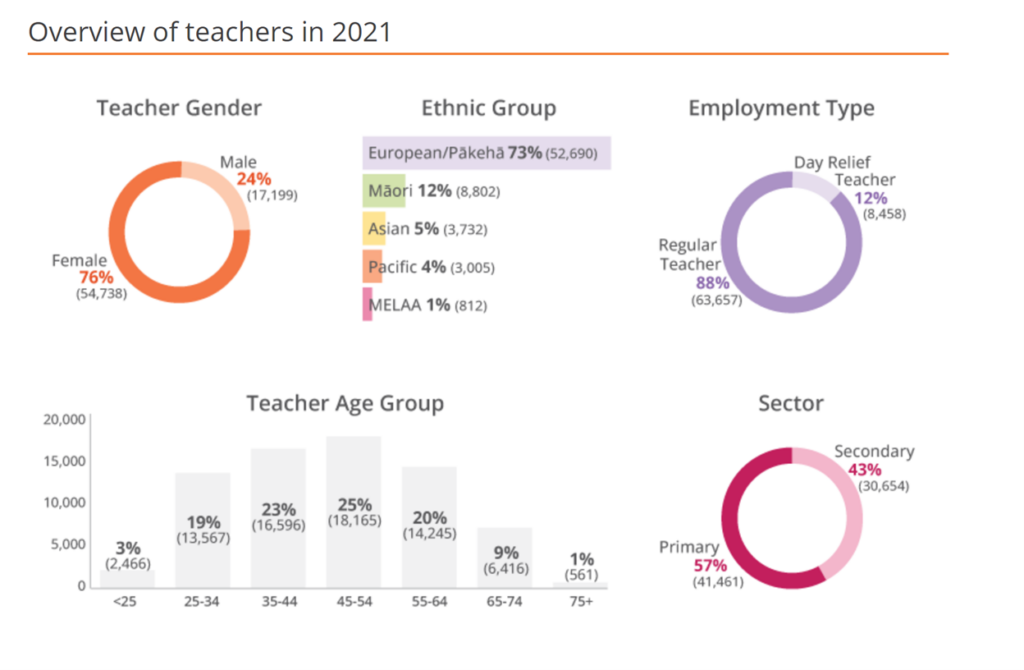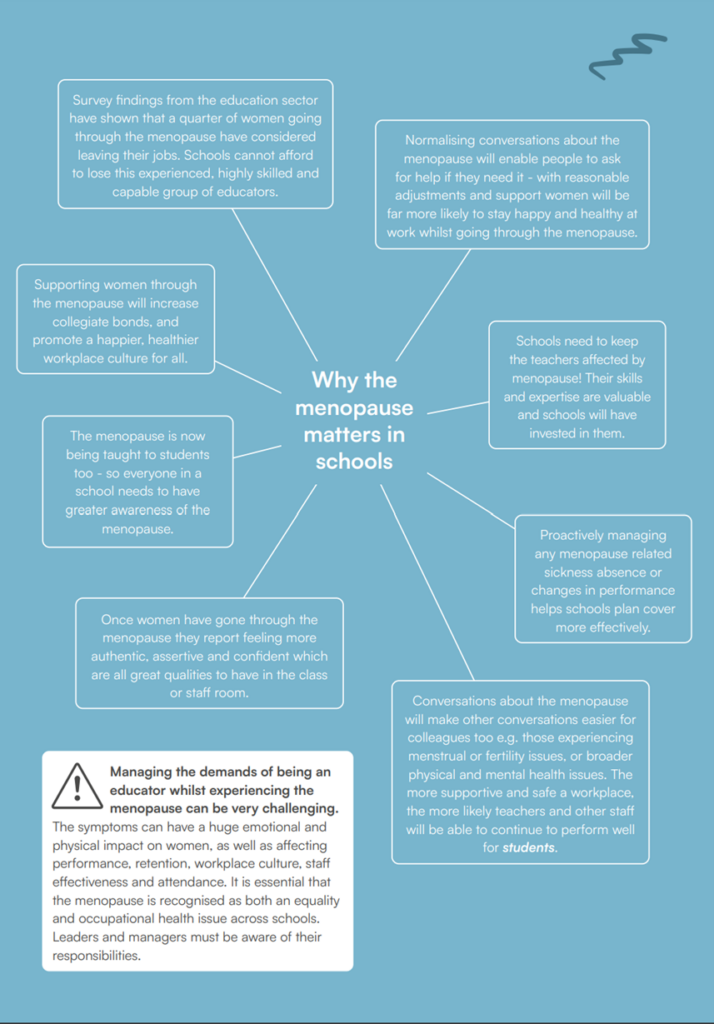Okay, so that may be a surprising topic for me to be blogging on, but we need to be talking about it – in every organisation.
Look at the stats below to see why we need to be talking about it in education.
‘In New Zealand, teachers are, on average, 44 years old, which is the same as the average age of teachers across OECD countries and economies participating in TALIS (44 years old).
Furthermore, 35% of teachers in New Zealand are aged 50 and above (OECD average 34%). This means that New Zealand will have to renew about one out of three members of its teaching workforce over the next decade or so.’ https://www.oecd.org/education/talis/TALIS2018_CN_NZL.pdf

https://www.educationcounts.govt.nz/statistics/teacher-numbers
We need to talk about it as perimenopause will impact on how our teachers do their job and also their own sense of wellbeing. ACAS in the UK states that 1 in 4 going through perimenopause will have severe symptoms.
So why talk about it openly?
Studies show that supporting staff experiences of perimenopause will:
- Enhance staff engagement
- Reduce sickness absence
- Improve staff retention
- Remove barriere for progression
- Help close the gender pay gap
- Reduce likelihood of descriminttation on the grounds of sex or disability
Schools also have a duty of care to employees to ensure that working conditions do not exacerbate symptoms and that staff do not face discrimination.
So what to do?

Talk about it
Menopause and perimenopause still feel like they are subjects to be whispered instead spoken about. By increasing transparency around the subject and setting up an in-school action group, you are immediately sending the message “we care and we understand”.
Have a well-being officer
This is a great way of supporting staff as well as helping to embed trauma-informed practices into the workplace.
Remind staff about EAP
EAP services can be used for talking about the impact of being perimenopausal in the workplace.
Regulate, Relate, Reason
These are key elements of trauma informed practice, and they are just as valid for dealing with perimenopausal symptoms. You may find you need to bounce back and forth between regulating, and relating before you can reason.
Work with your strengths
My Strengths Profile Blog talks more about this but it is so important that people are using the strengths that give them energy – rather than the strengths that are taking their energy away.
More resources to have available to staff – make them public
The diagram below comes from the UK and you can download their whole support booklet.
You might also like to look at this presentation from the University of Auckland.

